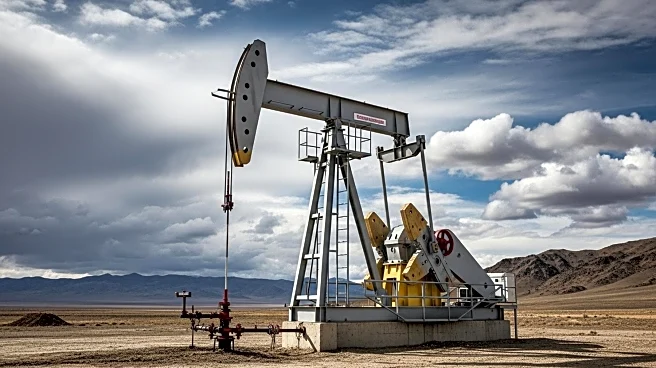What's Happening?
Argentina's energy chief, Daniel Gonzalez, has expressed confidence in the resilience of the Vaca Muerta shale oil and gas infrastructure against short-term political risks. Despite recent electoral setbacks for President Javier Milei's market-oriented reforms, Gonzalez emphasized that long-term projects, such as pipeline construction, remain unaffected by provincial election outcomes. The reforms have facilitated access to global credit for shale producers and transporters, including a significant project-finance deal for crude export pipelines. However, the recent election in Argentina's largest province has increased the country's risk premium and led to market sell-offs.
Why It's Important?
The Vaca Muerta shale is a critical component of Argentina's energy strategy, with potential implications for global energy markets. The ability to withstand political fluctuations is vital for attracting and retaining foreign investment in the sector. Continued support for free-market policies is essential for the development of major projects, such as new pipelines and LNG terminals. The stability of these investments could influence Argentina's economic growth and energy independence, impacting regional energy dynamics and global supply chains.
What's Next?
Future governments in Argentina will need to uphold free-market policies to ensure the continued development of the Vaca Muerta shale projects. Stakeholders, including international investors and energy companies like Chevron, are closely monitoring political developments to assess the viability of long-term investments. The outcome of upcoming elections and policy decisions will be crucial in determining the trajectory of Argentina's energy sector.
Beyond the Headlines
The situation highlights the broader challenge of balancing political stability with economic reforms in emerging markets. The resilience of the Vaca Muerta shale could serve as a model for other countries facing similar political and economic pressures. Additionally, the focus on long-term infrastructure projects underscores the importance of strategic planning in the energy sector, which can mitigate short-term political risks.









